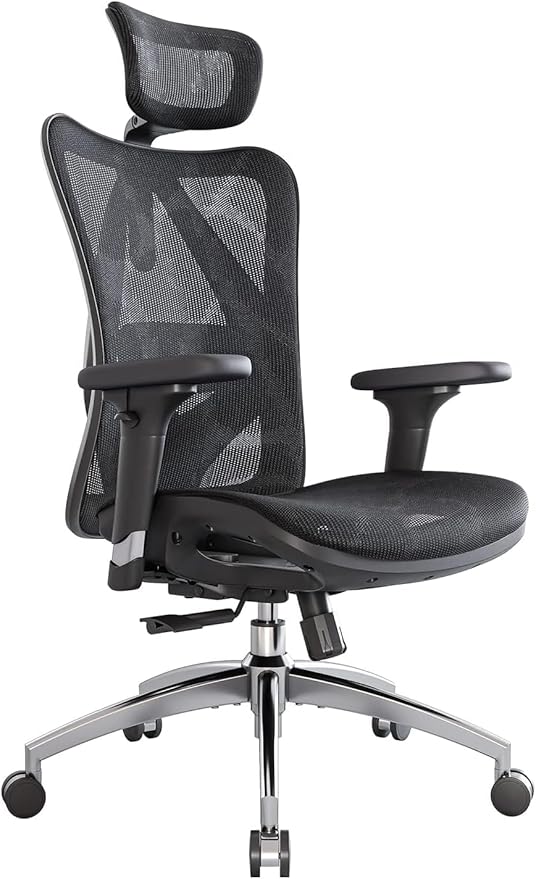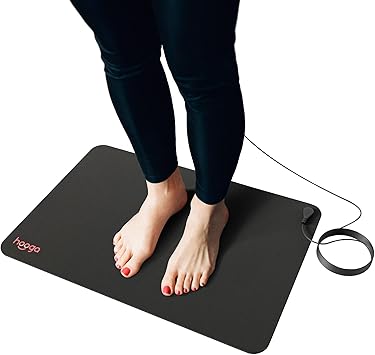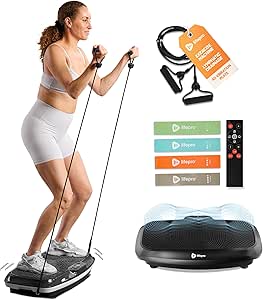Living with an autoimmune disorder means facing daily challenges, and one of the most debilitating is fatigue. Whether it’s the impact of chronic inflammation or the energy drain of dealing with flare-ups, managing energy levels is crucial. Over time, I’ve discovered a number of tools—both physical products and apps—that have made a significant difference in conserving energy and improving my quality of life. Here are the top 10 tools that have helped me manage autoimmune fatigue and keep my life as balanced as possible.
1. Smart Ring – Sleep and Activity Tracker
One of the biggest hurdles in managing autoimmune fatigue is ensuring that I get the proper amount of restorative sleep. The Ring has been a game-changer in tracking my sleep patterns and understanding my body’s recovery needs. This smart ring monitors sleep quality, activity levels, and heart rate variability, helping me make adjustments to my day when needed.
Why it’s helpful for autoimmune fatigue:
- Sleep Tracking: Gives insights into how much deep sleep you’re getting, which is vital for energy recovery.
- Activity Monitoring: Encourages you to stay active and pursue a healthier lifestyle.
- Discreet and Comfortable: The ring is easy to wear all day and night, so I don’t have to worry about comfort while tracking my health.
By using the Smart Ring, I can ensure I’m resting properly, which helps prevent burnout and keeps fatigue at bay.
2. My Homeschool Planner: Undated and Customizable
With autoimmune fatigue, one of the most important things to manage is energy—not just time. This Planner helps me organize my day, prioritize my tasks, and focus on what really matters without overexerting myself.
Why it’s helpful for autoimmune fatigue:
- Prioritize What Matters: Helps me decide what tasks are most important based on my energy levels.
- Time Blocking: Allows me to break up my day into manageable chunks to ensure I’m not overworking myself.
- Simple and Effective: The layout encourages simplicity, so I’m not overwhelmed by too many tasks.
By using this planner, I can structure my days around my energy, ensuring I take care of essential tasks without burning out.
3. SIHOO M57 Ergonomic Office Chair
When fatigue sets in, sitting for long periods can be uncomfortable and draining. The Ergonomic Chair has been essential for maintaining good posture and comfort while working or homeschooling. It helps minimize the strain on my body, allowing me to be more productive without exacerbating pain or fatigue.
Why it’s helpful for autoimmune fatigue:
- Posture Support: Adjustable settings help me find the right position to reduce physical strain.
- Energy Conservation: Reduces discomfort, allowing me to focus on my tasks without wasting energy trying to get comfortable.
- Durable and Comfortable: Built to support long sitting sessions with a focus on ergonomic comfort.
Having the right chair has allowed me to stay productive without overtaxing my body.
4. Trello – Digital Organization and Task Management Tool
Homeschooling, managing a household, and taking care of my health all require careful organization. Trello is a tool I use to organize homeschooling lessons, personal tasks, and family schedules. It allows me to stay on top of responsibilities without feeling overwhelmed.
Why it’s helpful for autoimmune fatigue:
- Visual Layout: Trello’s boards, lists, and cards help me organize tasks in a visually easy-to-understand way.
- Delegation: I can assign tasks to others when I’m low on energy, helping to ease the load.
- Cloud-Based: Accessible from any device, making it easy to adjust plans on the go.
By staying organized, I reduce the mental strain that can add to fatigue, allowing me to stay focused on my priorities.
5. Grounding Mat – Reducing Pain and Inflammation
One tool that has made a noticeable difference in my daily energy levels is this grounding mat. This mat helps me connect to the earth’s natural energy, which has been shown to reduce pain, inflammation, and improve sleep. After using the grounding mat for just a short period each day, I’ve experienced a significant decrease in pain and fatigue, especially during flare-ups.
Why it’s helpful for autoimmune fatigue:
- Reduces Inflammation: Studies show grounding can help lower inflammation, a common cause of fatigue in autoimmune disorders.
- Pain Relief: Many people report reduced pain levels after regular use.
- Simple to Use: You can use it while sitting, lying down, or even working at a desk, making it easy to incorporate into your routine.
Grounding has become an essential part of my daily self-care routine, and I can’t recommend it enough for reducing inflammation and conserving energy.
6. Plan to Eat – Meal Planning and Prep App < 20% off With my Link!
Eating well is crucial for managing autoimmune fatigue, but meal planning can be exhausting when you’re already low on energy. Plan to Eat has been a lifesaver for organizing and prepping meals. This app allows me to easily plan meals, create grocery lists, and even streamline the cooking process to ensure that I’m eating nourishing meals without spending too much time in the kitchen.
Why it’s helpful for autoimmune fatigue:
- Meal Planning: Allows me to plan out meals for the week, saving mental energy.
- Grocery List Creation: Automatically generates grocery lists based on the meals I plan, making shopping quicker and easier.
- Healthy Recipes: Offers a variety of healthy, autoimmune-friendly recipes that are easy to prepare.
By using Plan to Eat, I save time and energy while ensuring my meals support my health and energy levels.
7. MyFitnessPal – Nutritional Tracking App
Tracking what I eat has become essential for managing my autoimmune disorder and the fatigue that comes with it. MyFitnessPal helps me log my meals, track nutrients, and ensure I’m getting the right balance of food to support my energy levels and overall health.
Why it’s helpful for autoimmune fatigue:
- Nutrient Tracking: It helps me monitor my macronutrients, vitamins, and minerals, ensuring I’m eating a well-balanced diet.
- Easy to Use: Logging meals is quick and simple, and the app offers a huge database of foods.
- Energy Insights: By tracking my intake, I can see what foods might be causing flare-ups or contributing to fatigue.
This app helps me stay mindful of what I’m eating and ensures I’m giving my body the fuel it needs to thrive.
8. Vibration Plate – Low-Impact Exercise
Exercise is important for managing autoimmune fatigue, but high-impact activities can be too strenuous. The vibration plate offers a low-impact workout that helps improve circulation, reduce muscle stiffness, and boost energy without overexerting the body.
Why it’s helpful for autoimmune fatigue:
- Low Impact: Gentle on the joints, making it ideal for those with autoimmune conditions.
- Boosts Circulation: Helps get the blood flowing, which can reduce stiffness and increase energy levels.
- Short Sessions: A quick 10-minute session can provide benefits without draining your energy.
This is a fantastic way to get some movement in without the risk of overdoing it.
9. Infrared Therapy Belt – Portable Pain Relief
Managing pain from autoimmune conditions often goes hand-in-hand with managing fatigue. COMFORTABLE, HANDS-FREE DESIGN: The red light therapy belt fits comfortably while you sit, lie down or walk around, leaving your hands free.
Why it’s helpful for autoimmune fatigue:
- Pain Relief: Helps alleviate chronic pain by soothing muscles and joints, which is common in autoimmune disorders.
- Convenient and Hands-Free: Set it and forget it—allowing you to relax while the app takes care of the heat therapy process.
The convenience of controlling the heat therapy through an app allows me to relax and recover without using unnecessary energy, making it a great addition to my daily self-care routine.
10. Aromatherapy – Essential Oils for Relaxation and Energy
Finally, aromatherapy has been a helpful tool in managing stress and supporting energy levels. Certain essential oils, such as peppermint, eucalyptus, and lavender, have been shown to boost energy and help reduce feelings of fatigue. Diffusing these oils or applying them topically has become an essential part of my self-care routine.
Why it’s helpful for autoimmune fatigue:
- Stress Relief: Calming oils like lavender help reduce stress, which can contribute to fatigue.
- Energy Boost: Peppermint oil is known to invigorate and help combat tiredness.
- Natural and Soothing: Aromatherapy offers a natural solution for managing mental and physical fatigue.
Essential oils provide a simple, cost-effective way to support energy levels and reduce stress, both of which are essential for managing autoimmune fatigue.
Thriving in 2025
Living with autoimmune fatigue can feel overwhelming, but the right tools can make a huge difference. From tracking my sleep to meal planning with Plan to Eat and finding relief with a grounding mat, each of these tools has played an important role in helping me conserve energy and manage my health this past year. I am excited to share and help other people find more comfort this year!









